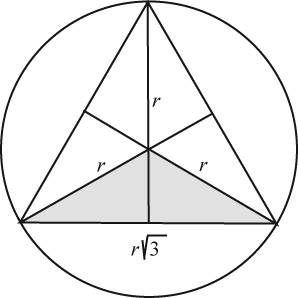Читати книгу - "Чому Захід панує - натепер"
Шрифт:
Інтервал:
Добавити в закладку:
Totman, Conrad. Early Modem Japan. Berkeley: University of California Press, 1993.
———. A History of Japan. Oxford: Blackwell, 2000.
Tracy, James, ed. The Rise of Merchant Empires: Long-Distance Trade in the Early Modern World, 1350-1750. Cambridge, UK: Cambridge University Press, 1990.
———. ed. The Political Economy of Merchant Empires. Cambridge, UK: Cambridge niversity Press, 1991.
———. The Founding of the Dutch Republic: War, Finance, and Politics in Holland, 1572-1588. Oxford: Oxford University Press, 2008.
Trigger, Bruce. A History of Archaeological Thought. 2nd ed. Cambridge, UK: Cambridge University Press, 1995.
———. Sociocultural Evolution.Oxford: Blackwell, 1998.
Trimble, Jennifer. Replicating Women in the Roman Empire.Cambridge, UK: Cambridge University Press, 2009.
Tsai, Shih-shan. Perpetual Happiness: The Ming Emperor Yongle.Seattle: University of Washington Press, 2001.
Tsunoda, Ryusaku, William de Bary, and Donald Keene, trans. Sources ofjapanese Tradition.2 vols. New York: Columbia University Press, 1964.
Tuchmann, Barbara. The Guns of August. London: Macmillan, 1962.
———. A Distant Mirror: The Calamitous Fourteenth Century. New York: Ballantine, 1978.
———. The March of Folly: From Troy to Vietnam. New York: Ballantine, 1984.
Turchin, Peter. "A Theory for Formation of Large Empires." Journal of Global History 4 (2009), pp. 191-217.
Twain, Mark. Autobiography I. New York: Harper, 1924.
Twitchett, Denis. "Population and Pestilence in T ang China." In Wolfgang Bauer, ed., Studia Sino-Mongolica: Festschrift fur Herbert Franke, pp. 35-68. Wiesbaden: Harrassowitz Verlag, 1979.
Twitchett, Denis, and Michael Loewe, eds. The Cambridge History of China, vol. 1. Cambridge, UK: Cambridge University Press, 1986.
Tyerman, Christopher. God s War: A New History of the Crusades.Cambridge, MA: Harvard University Press, 2006.
Uglow, Jenny. The Lunar Men.New York: Farrar, Straus and Giroux, 2002.
Underhill, Anne, et al. "Regional Survey and the Development of Complex Societies in Southeast Shandong, China." Antiquity 76 (2002), pp. 745-55.
Underhill, Peter, et al. "The Phylogeography of Y Chromosome Binary Haplotypes and the Origins of Modern Human Populations." American Journal of Human Genetics 65 (2001), pp. 43-62.
United Nations Human Development Programme. Human Development Report 2009. Overcoming Barriers: Human Mobility and Development.New York: United Nations Development Programme, 2009. http://hdr.undp.org/en/.
United Nations Organization. 2003 Energy Statistics Yearbook.New York: United Nations Organization, 2006.
Upton, Anthony. Europe, 1600-1789. London: Arnold, 2001.
Ur, Jason, et al. "Early Urban Development in the Near East." Science317 (2007), pp. 1188-89.
Vanaeren, Marian, et al. "Middle Paleolithic Shell Beads in Israel and Algeria." Science 312(2006), pp. 1785-88.
van Bavel, Bas, and Jan Luiten van Zanden. "The Jump-Start of the Holland Economy During the Late-Medieval Crisis, c. 1350-c. 1500." Economic History Review 57 (2004), pp. 502-32.
van Creveld, Martin. The Rise and Decline of the State.Cambridge, UK: Cambridge University Press, 1999.
van de Mieroop, Marc. A History of the Ancient Near East.2nd ed. Oxford: Blackwell, 2007.
van Zanden, Jan Luiten. "The ‘Revolt of the Early Modernists and the ‘First Modem Economy': An Assessment." Economic History Review55 (2002), pp. 619-41.
Verhulst, Adriaan. The Carolingian Economy.Cambridge, UK: Cambridge University Press, 2002.
Vermeij, Geert. Nature: An Economic History.Princeton: Princeton University Press, 2004.
Voight, Benjamin, et al. "AMap of Recent Positive Selection in the Human Genome." Public Library of Science Biology 4 (2006), e72.
von Daniken, Erich. Chariots of the Gods? Was God an Astronaut? New York: Putnams, 1968.
von Falkenhausen, Lothar. Suspended Music: Chime Bells in the Culture of Bronze Age China.Berkeley: University of California Press, 1993a.
———. "On the Historiographical Orientation of Chinese Archaeology." Antiquity 67 (1993b), pp. 839-49.
———. Chinese Society in the Age of Confucius (1000-250 BC): The Archaeological Evidence.Los Angeles: Cotsen Institute of Archaeology, 2006.
von Glahn, Richard. The Country of Streams and Grottoes: Expansion, Settlement, and the Civilizing of the Sichuan Frontier in Song Times. Cambridge, MA: Harvard University Press, 1987.
———. Fountain of Fortune: Money and Monetary Policy in China, 1000-1700.
Berkeley: University of California Press, 1996.
———. "Revisiting the Song Monetary Revolution." International Journal of Asian Studies 1 (2004), pp. 159-78.
von Verschuer, Charlotte. Across the Perilous Sea: Japanese Trade with China and Korea from the Seventh to the Sixteenth Centuries. Ithaca, NY: Cornell University Press, 2006.
Voth, Hans-Joachim. "The Longest Years: New Estimates of Labor Inputs in England, 1760-1830." Journal of Economic History 61 (2001),pp. 1065-82.
Wagner, Donald. Iron and Steel in Ancient China.Leiden: E. J. Brill, 1993.
———. "The Administration of the Iron Industry in Eleventh-Century China." Journal of the Economic and Social History of the Orient 44 (2001a), pp. 175-97.
———. "Blast Furnaces in Song-Yuan China." East Asian Science, Technology, and
Medicine 18 (2001b), pp. 41-74.
———. The State and the Iron Industry in Han China.Copenhagen: Nordic Institute of Asian Studies, 2001c.
———. Science and Civilisation in China V Chemistry and Chemical Technology. Part 11: Ferrous Metallurgy.Cambridge, UK: Cambridge University Press, 2008.
Walder, Andrew. Fractured Rebellion: The Beijing Red Guard Movement.Cambridge, MA: Harvard University Press, 2009.
Waley, Arthur. The Book of Songs.New York: Houghton Mifflin, 1937.
———. "The Fall oflo-yang." History Todayl (1951), pp. 7-10.
———. The Opium War Through Chinese Eyes. London: George Allen & Unwin, 1958.
———. Chinese Poems. London: Unwin, 1961.
Waley, Daniel. The Italian City-Republics. 3rd ed. London: Weidenfeld and Nicolson, 1988.
Walker, Paul. Exploring an Islamic Empire: Fatimid History and its Sources.London: I. B. Tauris, 2002.
Walmsley, Alan. Early Islamic Syria. London: Routledge, 2007.
Wang, Eric, et al. "Recent Acceleration of Human Adaptive Evolution." Proceedings of the National Academy of Sciences 104 (2007), pp. 20753-58.
Wang, Gungwu. Divided China: Preparing for Reunification, 883-947. Singapore: National University of Singapore University, 2007.
Wang, Mingke. "From the Qiang Barbarians to the Qiang Nationality: The Making of a New Chinese Boundary." In Shu-min Huang and Cheng-kuang Hsu, eds., Imagining China: Regional Division and National Unity, pp. 43-80. Taipei: Academica Sinica, 1999.
Wang, Xiaoqing. "The Upper Paleolithic Longwangcan Site at Yichuan in Shaanxi." Chinese Archaeology8 (2008), pp. 32-36.
Wang, Zhongshu. Han Civilization.New Haven, CT: Yale University Press, 1982.
Ward, Steven, and Erik Asphaug. "Asteroid Impact Tsunami: A Probabilistic Hazard Assessment." Icarus 145 (2000), pp. 64-78.
Ward-Perkins, Bryan. The Fall of Rome and
Увага!
Сайт зберігає кукі вашого браузера. Ви зможете в будь-який момент зробити закладку та продовжити читання книги «Чому Захід панує - натепер», після закриття браузера.

